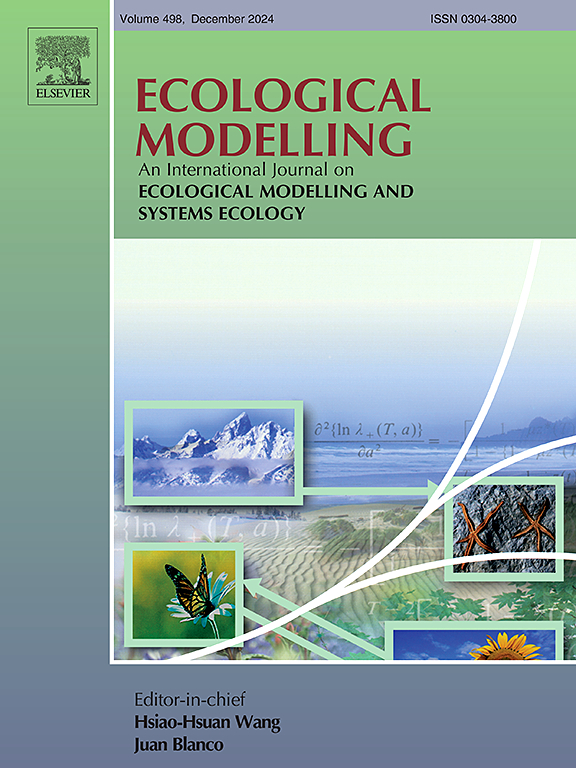Howard T. Odum’s contributions to evolutionary theory
IF 3.2
3区 环境科学与生态学
Q2 ECOLOGY
引用次数: 0
Abstract
The famed systems ecologist Howard T. Odum rarely engaged directly with the activities of evolutionists or the advancement of evolutionary theory. The field of evolution does not claim Odum among their own, and he did not direct his scholarship to the topic or journals of evolution. But he undoubtedly saw his theorizing of system self-organizing as encompassing of evolutionary theory. To draw out that relationship, this paper will assemble a historical recounting of Odum’s writings that pertained to evolutionary theory. It will be documentary research of his prolific output of publications over 50 years with the aim of distilling the core of Odum’s thinking about evolution. For the systems ecologist Odum, self-organization is the evolutionary process of all systems in which designs develop and prevail that maximize power intake, energy transformation, and those uses that reinforce production and efficiency. This process Odum labels ‘maximum power’ and is the instrument of natural selection in systems. There is selection for maximum power in systems without life, in the origin of life, and in systems with life. The maximization of power is not human focused, it is not intentional, it is not a theory of group selection, and it may be continuous or particulate. Both natural selection and ecological succession are kinds of ‘system learning’, with different scales of time and space. System designs naturally form ‘hierarchy’, which contributes to maximum power by expanding system inputs in space and length. These topics are all addressed in the paper. Odum never felt constrained by academic disciplinary boundaries. He conceived of science as an integrated whole, with his writings intended for all the disciplines, including the evolutionists. While they may not have recognized his ideas, they need them.
霍华德·t·欧达姆对进化论的贡献
著名的系统生态学家Howard T. Odum很少直接参与进化论者的活动或进化理论的发展。进化领域并没有宣称欧达姆属于他们自己,他也没有将他的学术研究导向进化的主题或期刊。但毫无疑问,他认为他的系统自组织理论包含了进化论。为了找出这种关系,本文将对欧达姆与进化论有关的著作进行历史叙述。这将是对他50多年来多产的出版物的文献研究,目的是提炼出奥达姆关于进化的核心思想。对于系统生态学家Odum来说,自组织是所有系统的进化过程,在这个过程中,设计的发展和流行最大化了能量的摄入,能量的转换,以及那些加强生产和效率的使用。这个过程Odum称之为“最大功率”,是系统中自然选择的工具。在没有生命的系统中,在生命的起源中,在有生命的系统中,都有对最大功率的选择。权力的最大化不是人为的,它不是有意的,它不是群体选择的理论,它可能是连续的,也可能是微粒的。自然选择和生态演替都是一种“系统学习”,具有不同的时间和空间尺度。系统设计自然形成“层次结构”,这有助于通过扩大系统在空间和长度上的输入来获得最大功率。这些题目都在论文中讨论。奥达姆从不觉得自己受到学科界限的束缚。他认为科学是一个综合的整体,他的著作适用于所有学科,包括进化论者。虽然他们可能没有认可他的想法,但他们需要这些想法。
本文章由计算机程序翻译,如有差异,请以英文原文为准。
求助全文
约1分钟内获得全文
求助全文
来源期刊

Ecological Modelling
环境科学-生态学
CiteScore
5.60
自引率
6.50%
发文量
259
审稿时长
69 days
期刊介绍:
The journal is concerned with the use of mathematical models and systems analysis for the description of ecological processes and for the sustainable management of resources. Human activity and well-being are dependent on and integrated with the functioning of ecosystems and the services they provide. We aim to understand these basic ecosystem functions using mathematical and conceptual modelling, systems analysis, thermodynamics, computer simulations, and ecological theory. This leads to a preference for process-based models embedded in theory with explicit causative agents as opposed to strictly statistical or correlative descriptions. These modelling methods can be applied to a wide spectrum of issues ranging from basic ecology to human ecology to socio-ecological systems. The journal welcomes research articles, short communications, review articles, letters to the editor, book reviews, and other communications. The journal also supports the activities of the [International Society of Ecological Modelling (ISEM)](http://www.isemna.org/).
 求助内容:
求助内容: 应助结果提醒方式:
应助结果提醒方式:


